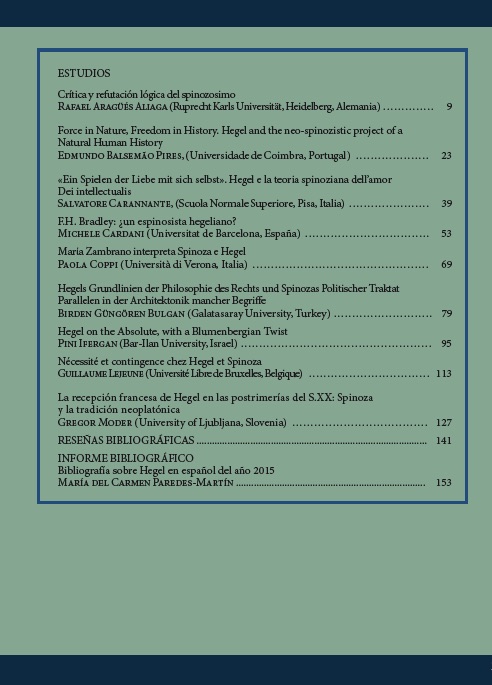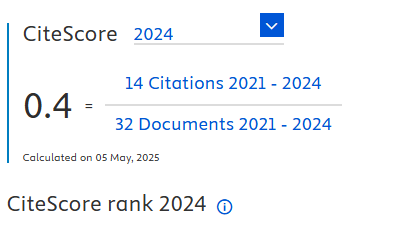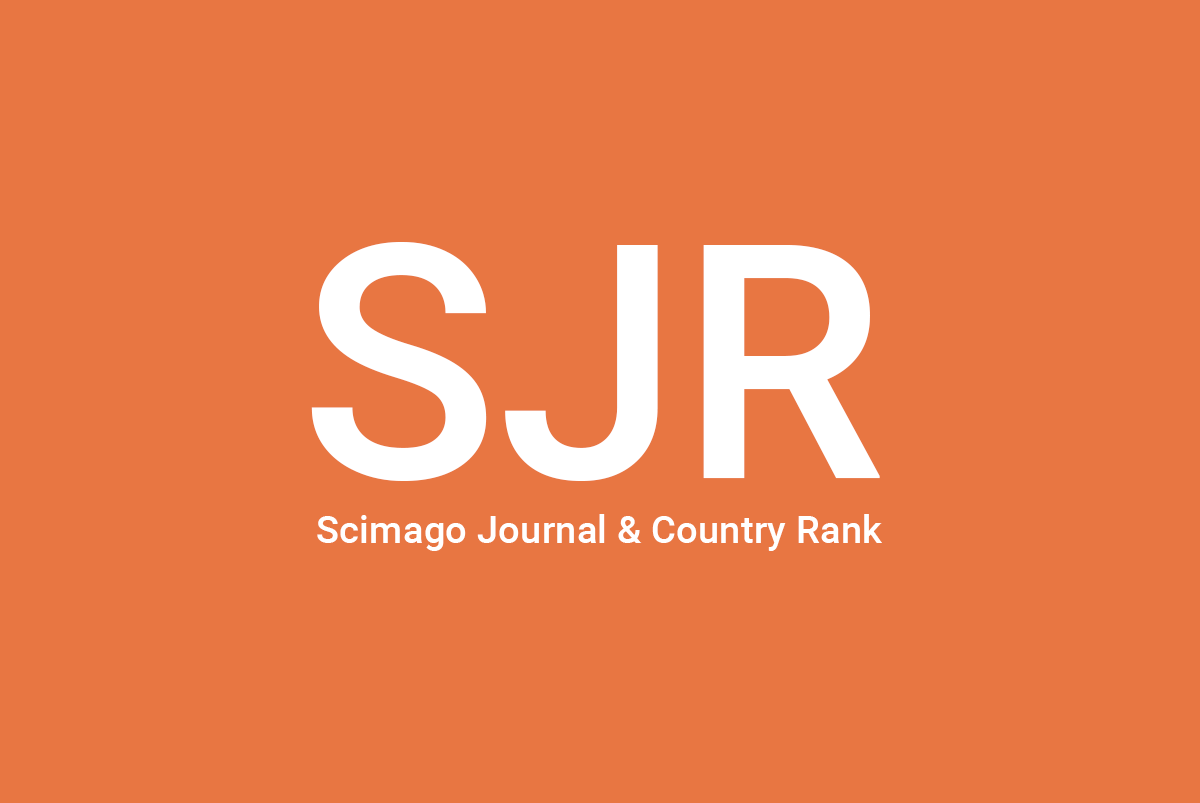Force in Nature, Freedom in History. Hegel and the neo-spinozistic project of a Natural Human History
DOI:
https://doi.org/10.24310/stheg.v0i2.3704Keywords:
Philosophy of History, Philosophy of Nature, Philosophy of Religion, Conatus, Force, Religious Diversity, Nature, Spirit, Spinoza, Herder, Schelling, HegelAbstract
This contribution explains the connections between the German lines of the reception of the Ethica and the Tractatus Theologico-Politicus and the formation of Herder’s, Schelling’s and Hegel’s Philosophies of History. It refers to the Philosophy of Unity as a main current but articulates the lines of the reception of the Ethica with the difficulties raised by Spinoza’s explanations for the multiplicity of the religious traditions, as divergent historical ways to the One, in the Tractatus. Hegel’s Lectures on Philosophy of Religion were scrutinized from the angle of their general methodical significance and also from the descriptive point of view. Here, one finds critical keys for the understanding of the philosopher’s perspective regarding Spinoza’s meaning to the speculative method and for the characterisation of the epochs in the History of the Biblical Religions. Hegel’s critique of the Philosophy of Unity personified in Schelling’s appropriation of Spinoza’s conatus was envisaged in order to locate the pivotal point of the idea of an unbroken Natural and Human History. The paper argues that in Hegel’s critique of Schelling’s Spinozism the German lines of Spinoza’s reception were taken as responsible for a vague concept of the Absolute. Such vagueness explains the absence of clarity about the difference between Nature and Spirit (History), particularly in Schelling’s Absolute, and demands a different configuration of the «Real Philosophies» in the philosophical system.
Downloads
Metrics
Publication Facts
Reviewer profiles N/A
Author statements
Indexed in
-
—
- Academic society
- N/A
- Publisher
- Universidad de Málaga
Downloads
Published
How to Cite
Issue
Section
License
This journal provides immediate free access to its content under the principle of making research freely available to the public. All contents published in Studia Hegeliana. Journal of the Spanish Society for Hegelian Studies, are subject to the Creative Commons Attribution-NonCommercial-ShareAlike 4.0 licence (specifically, CC-by-nc-sa), the full text of which can be found at <http://creativecommons.org/licenses/by-nc-sa/4.0>. Derivative works are therefore permitted as long as they are not used for commercial purposes. The original work may not be used for commercial purposes. The journal is not responsible for the opinions expressed by the authors of the works published in it.
It is the authors' responsibility to obtain the necessary permissions for images that are subject to copyright.
Authors whose contributions are accepted for publication in this journal retain the copyright. It is non-exclusive right to use their contributions for scholarly, research and educational purposes, including self-archiving or deposit in open access repositories of any kind.
Since volume 7 of 2021 the journal Studia Hegeliana has changed the copyright. Since that year the authors have retained the copyright.
The electronic edition of this journal is published by the Editorial de la Universidad de Málaga (UmaEditorial), being necessary to cite the source in any partial or total reproduction.







244.png)






















